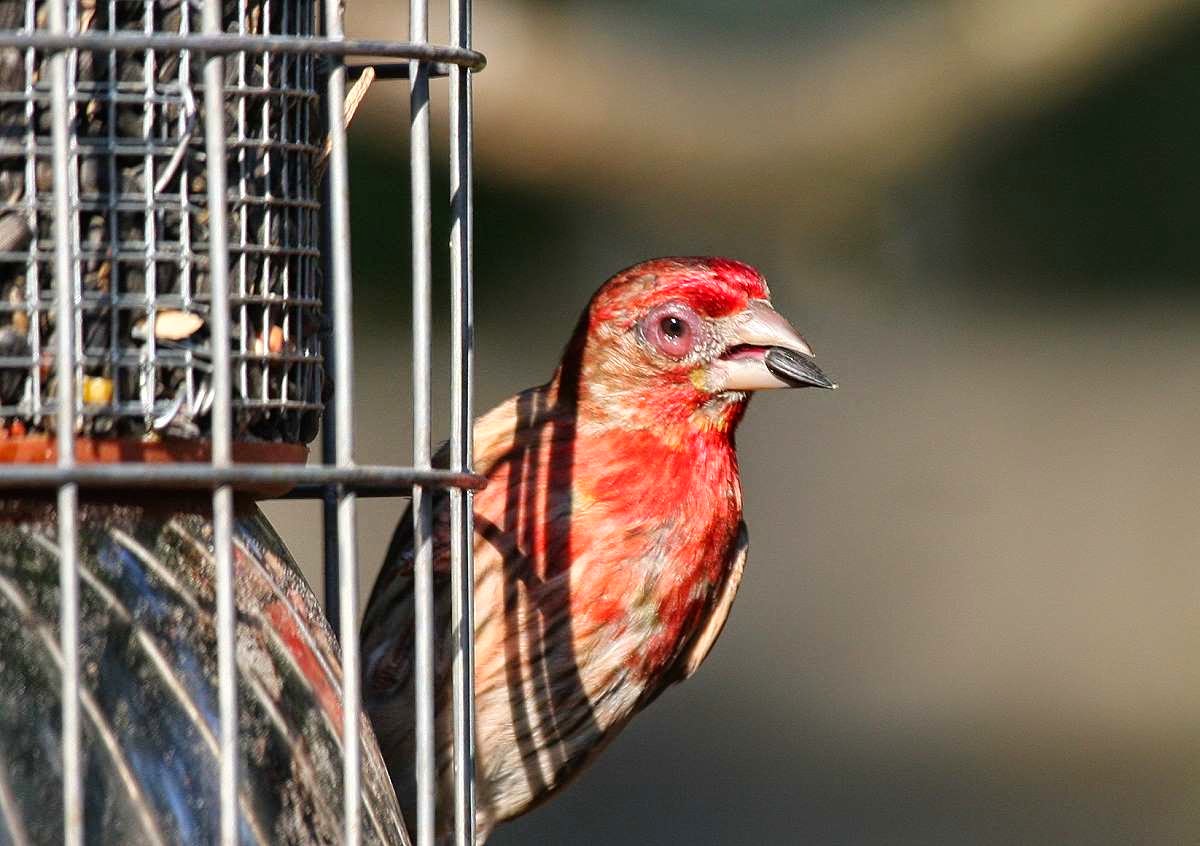 |
| A male finch shows signs of eye disease. Photo by Errol Taskin |
Cornell University reports that more than half the bird species they tested had been exposed to the bacteria responsible for House Finch eye disease. A paper recently published in the online scientific journal PLOS ONE shows that a bacterial parasite previously thought to infect only a few species of feeder birds is actually infecting a surprisingly wide range of species, though most do not show signs of illness.
Though many species of songbirds can be infected by this bacterium, only House Finches regularly exhibit swollen eyes as a result of infections. Birders can help by joining Cornell Lab's Project FeederWatch in November. As part of the bird counts, participants are asked to record signs of the disease in finches.
The take-home message for people who feed backyard birds remains the same: keep the feeders clean. If you see sick birds, leave them alone, take down the feeders and clean them, being sure to wash your hands thoroughly afterward.
The California Department of Fish and Game recommends:
•Sanitize feeders and birdbaths WEEKLY using a 10 percent bleach solution and water, rise and allow to completely dry before refilling.
•Clean up old food around feeders regularly to prevent disease and reduce the attraction for mice and rats
•Clean bird droppings off patios and decks
•Replace wooden feeders with plastic which can be cleaned and sanitized
•Use gloves when handling feeders and wash your hands when finished
•Keep wild birds away from pet food and water
•Do not place feeders where humans eat, drink or prepare food
Happy Birding!
J.J.
No comments:
Post a Comment